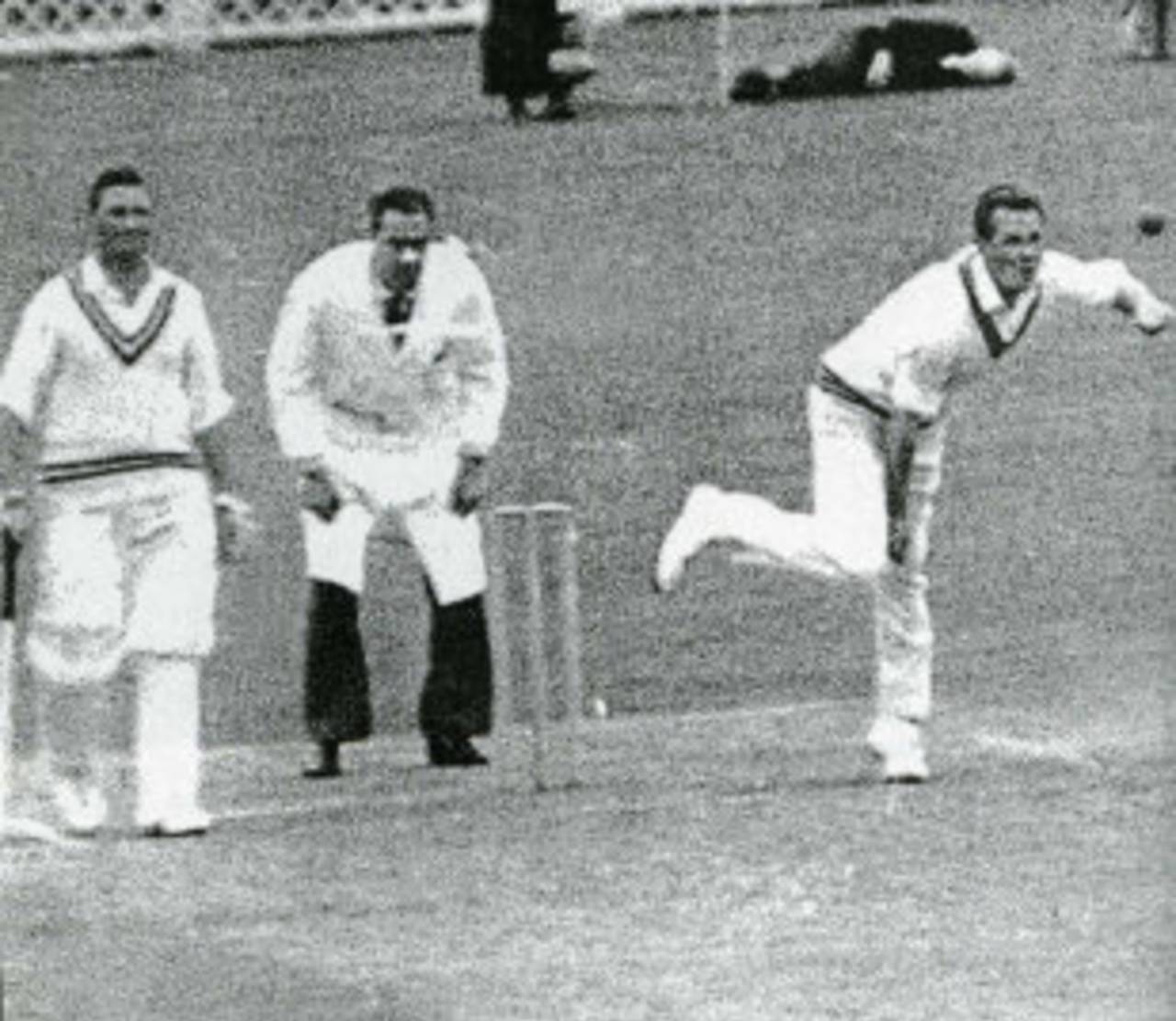In the crash-bang world of one-day and Twenty20 cricket, dot balls are regarded as something of an achievement, and maiden overs an endangered species (if not an extinct one as far as Twenty20 is concerned). It is therefore almost certain that
Brian Langford's return of 8-8-0-0 in the inaugural season of the Players' Sunday League in 1969 will never be equalled.
For almost a decade after one-day cricket was introduced in 1963, sides approached it in much the same way as they did the first-class game. Bowlers were played on their merits, unorthodoxy was rare, and aside from risky running in the dying overs, there was little to distinguish the various forms of the game, especially as coloured clothing was still years away.
Buoyed by the success of the Gillette Cup in bringing crowd and much-needed cash to counties, in 1969 the Test & County Cricket Board, the forerunner of the ECB, launched a 40-over Sunday competition. It proved an immediate hit with the public, even if it was less popular with players as matches were sandwiched between the first and second days of Championship games (the Saturday and the Monday), often requiring long journeys to fulfill fixtures that appeared to have been arranged by someone with no idea of travelling on Britain's roads on busy summer weekends.
Fortunately there was no such logistical headache for Somerset and Essex when they met
in Yeovil on July 27 as the game coincided with their Championship clash in Taunton. So both sides only had a short trip across the county on a warm Sunday for the 2pm start. Essex were the favourites, lying second to Lancashire with only one loss in their 10 matches, while Somerset with two victories to their name, were second from bottom.
Langford, Somerset's captain, won the toss, and stuck Essex in to bat, and his bowlers took early wickets to reduce the visitors to 19 for 3 from 13 overs. On a pitch that turned from the start, Langford brought himself on after the second wicket fell. Brian Ward, the Essex opener, and Lee Irvine, their South African overseas player, reckoned he was the danger man, and decided on a safety-first approach for his eight-over spell. "I thought I'd play him out," Ward recalled. "Talk about records like Laker's... that'll never be beaten."
Langford duly wheeled away with little attempt made to score off him. Irvine fell to Peter Robinson at the other end, bringing in the hard-hitting West Indian allrounder Keith Boyce to the crease. But Boyce was unable to get the strike as Ward defended over after over. "I only bowled about three balls to Boyce otherwise I certainly wouldn't have finished with eight maidens," Langford admitted.
There were two moments that threatened to spoil his perfect figures. The first when a ball appeared to be gloved down to long leg, but umpire John Langridge signalled a leg bye, the second when Boyce pulled a ball straight into Robinson at short leg.
"At the start of the eighth over Langridge pointed out that I could finish with unusual figures, and I had to ask what he meant," Langford said. "It hadn't registered that I'd sent down seven maidens because I was captain, and had more important things to think about."
The eighth over to Ward was another maiden, and Langford retired from the attack with his small place in cricket history guaranteed. He had one last contribution to the innings when he ran out Doug Insole for 0 with a direct hit from deep square leg. The 43-year-old Insole, who had not played for his county for six years, had rushed down by train that morning after answering an SOS from the county, and had suffered the ignominy of having a child throw up over his cricket bag en route. It was a wasted trip, and was his last appearance in serious cricket, providing a statistically symmetrical finale as he had been run out by a direct hit in
his first innings 22 years earlier.
Essex were eventually bowled out for 126 in 38.2 overs, and while that would be a poor Twenty20 score today, in those times it was low but not extraordinarily so. On the same day in the seven other Players' League matches only three teams passed 200 and the rest failed to reach 150.
Even so, Somerset struggled, and at 82 for 8 appeared set for defeat before Robinson (24*) and Graham Burgess (26*) saw them home with a leg bye off the first ball of the last over. Their ninth-wicket stand of 45 took 15 overs.
